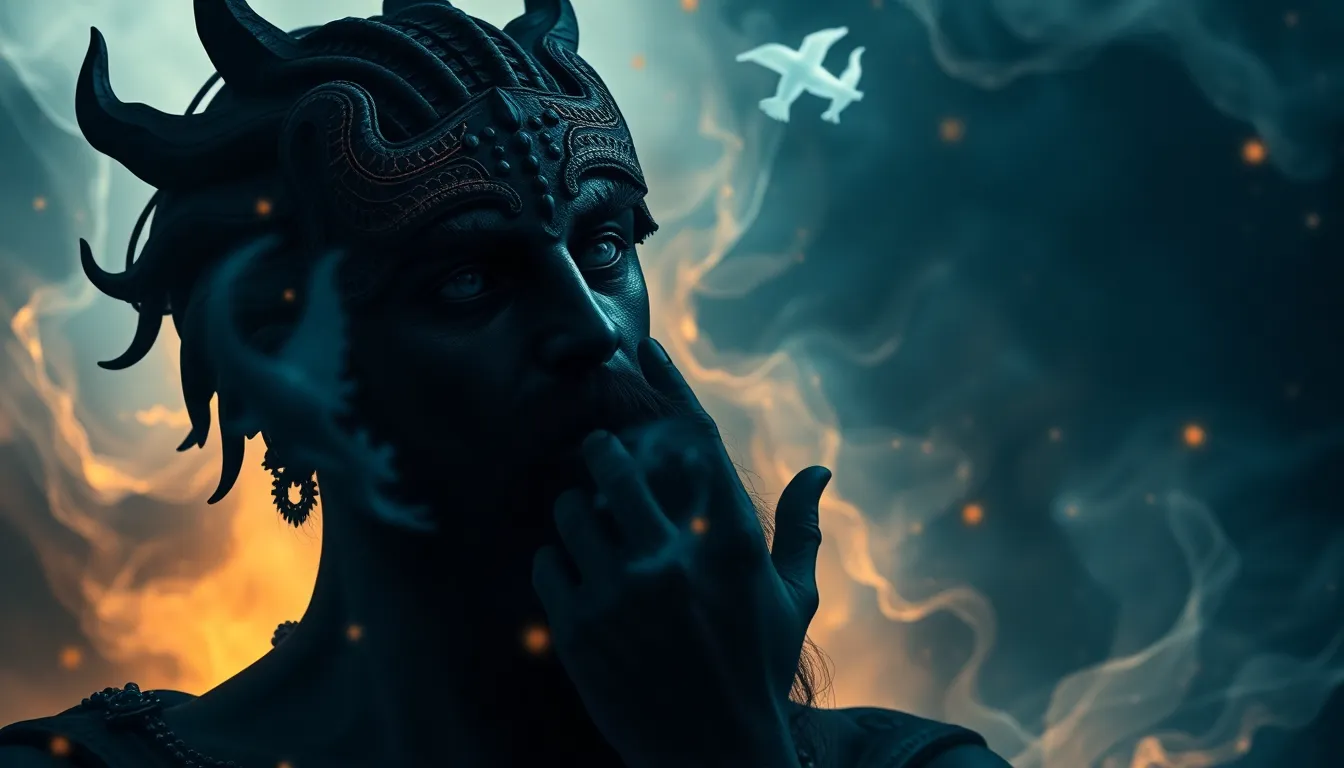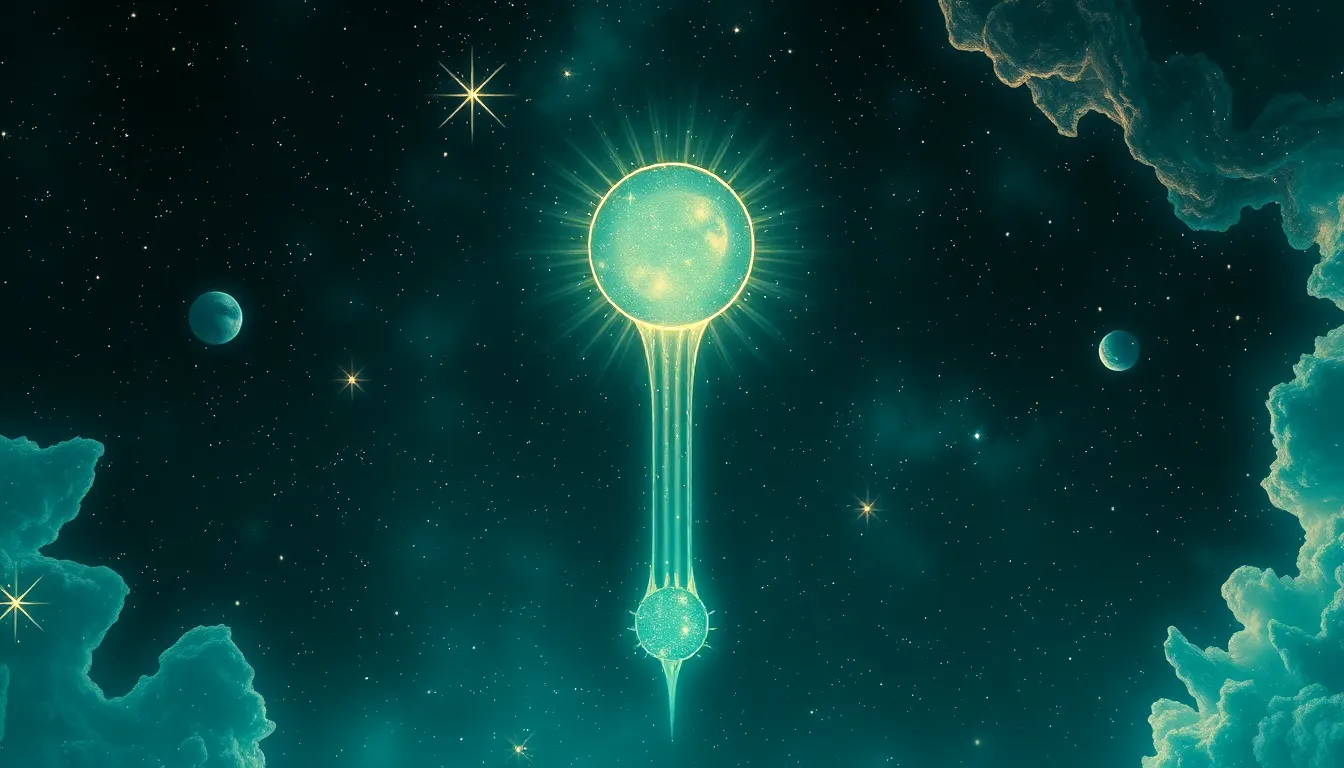The Role of Myths in Ethical Decision Making
I. Introduction
Myths have been an integral part of human culture and society for millennia. They serve as foundational narratives that provide explanations for natural phenomena, cultural practices, and human behaviors. Myths encapsulate the beliefs, values, and moral frameworks of a community, thus playing a crucial role in shaping social norms and ethical guidelines.
Ethical decision making refers to the process of evaluating and choosing among alternatives in a manner consistent with ethical principles. It involves discerning right from wrong and making choices that reflect moral values. As such, the influence of myths on ethical decision making is profound; they serve as a compass that guides individuals and societies in navigating complex moral landscapes.
This article posits that myths serve as foundational narratives that shape moral frameworks and influence ethical choices across cultures.
II. Understanding Myths: Definition and Function
A. Defining myths and their characteristics
Myths are traditional stories that explain the beliefs, customs, and values of a culture. They often involve supernatural beings, gods, and heroes, and serve to convey important moral lessons. Characteristics of myths include:
- Symbolism: Myths often use symbolic language and imagery to convey deeper meanings.
- Timelessness: Myths transcend time and can be relevant across generations.
- Cultural significance: They reflect the values and beliefs of the culture from which they originate.
B. The psychological and social functions of myths in society
Myths fulfill several psychological and social functions, including:
- Creating a collective identity: Myths help individuals feel connected to their culture and community.
- Providing moral guidance: They offer frameworks for understanding right and wrong.
- Offering explanations: Myths provide answers to existential questions and uncertainties.
C. The distinction between myths, legends, and folktales
While often used interchangeably, myths, legends, and folktales have distinct characteristics:
- Myths: Focus on creation, gods, and universal truths.
- Legends: Based on historical events or figures, often embellished.
- Folktales: Generally entertain and impart moral lessons, often featuring ordinary people.
III. Historical Perspectives on Myths and Ethics
A. Ancient civilizations and their mythological frameworks
Throughout history, civilizations such as the Greeks, Norse, and Indigenous peoples have relied on mythological narratives to shape their ethical systems. For example:
- Greek Mythology: The stories of gods and heroes in Greek mythology often include moral lessons about hubris, justice, and virtue.
- Norse Mythology: Tales of gods like Odin and Thor highlight values such as bravery, loyalty, and sacrifice.
- Indigenous Myths: Many Indigenous cultures have creation myths that emphasize harmony with nature and the interconnectedness of all beings.
B. The influence of mythological stories on historical ethical systems
Mythological stories have historically shaped ethical systems by providing archetypes of virtue and vice, influencing laws, customs, and social norms.
C. Case studies of specific myths that shaped ethical paradigms
One notable example is the myth of Prometheus in Greek mythology, which raises questions about the morality of defiance against the gods for the sake of humanity. This myth has influenced discussions around ethics in science and technology.
IV. The Psychological Impact of Myths on Decision Making
A. Cognitive processes involved in myth interpretation
Myths engage cognitive processes such as analogical reasoning, where individuals draw parallels between mythological narratives and real-life situations, influencing their moral reasoning.
B. How myths influence individual beliefs and values
Myths often embed core values within their narratives, which can shape individual beliefs and influence ethical decision making over time.
C. The role of archetypes in moral reasoning
Archetypes found in myths, such as the hero, the mentor, and the trickster, provide models for behavior and decision-making, guiding individuals in assessing moral dilemmas.
V. Myths in Contemporary Ethical Dilemmas
A. Application of myths in modern ethical conflicts
Modern ethical conflicts, such as those in medical ethics and environmental issues, can often be illuminated by mythological narratives. For instance:
- Medical Ethics: The Hippocratic Oath can be viewed through the lens of the myth of Asclepius, the god of healing, emphasizing the moral duty of physicians.
- Environmental Issues: Myths like that of the Earth Mother highlight the importance of caring for the environment and respecting nature.
B. Case studies illustrating the relevance of ancient myths in contemporary situations
For example, the myth of Icarus, who flew too close to the sun, serves as a cautionary tale in discussions about technological advancement and ethical boundaries.
C. The role of storytelling in ethical discourse today
Storytelling, rooted in myth, remains a powerful tool in ethical discourse, allowing individuals to explore moral complexities through relatable narratives.
VI. Cross-Cultural Perspectives on Myths and Ethics
A. Comparative analysis of mythological influences on ethics in different cultures
Different cultures have unique mythological influences that shape their ethical systems, yet many share universal themes, such as justice, sacrifice, and the quest for truth.
B. The universal themes in myths that address ethical issues
Common themes in myths include:
- Redemption
- Justice
- The struggle between good and evil
C. How globalization affects the interpretation of myths and ethical decisions
Globalization has led to the blending of mythologies, allowing for a richer tapestry of ethical frameworks, but it also raises challenges regarding cultural appropriation and misinterpretation.
VII. The Role of Myths in Organizational Ethics
A. Myths as corporate narratives that shape organizational culture
Organizations often create their own myths that reflect their values and mission, guiding employee behavior and decision-making.
B. The impact of mythological frameworks on corporate decision making
Mythological narratives can help organizations navigate ethical dilemmas, providing a moral compass that aligns with their corporate identity.
C. Examples of organizations using myths to guide ethical practices
Companies like Patagonia use environmental myths to reinforce their commitment to sustainability, influencing their business practices and corporate culture.
VIII. Critiques of Myths in Ethical Decision Making
A. The limitations and potential dangers of relying on myths
While myths can provide valuable guidance, they may also oversimplify complex ethical issues, leading to dogmatism and rigidity in moral reasoning.
B. The risk of misinterpretation and oversimplification of ethical complexities
Misinterpretation of myths can result in misguided ethical decisions, as individuals might extract lessons that do not consider the nuances of contemporary issues.
C. Alternative frameworks to myths for ethical reasoning
Alternative frameworks, such as utilitarianism and deontological ethics, provide systematic approaches to ethical decision making that may complement or challenge traditional mythological narratives.
IX. Integrating Myths into Ethical Education
A. The value of teaching ethics through mythological narratives
Integrating myths into ethical education can engage students and provide relatable contexts for exploring complex ethical issues.
B. Strategies for incorporating myths into ethical training programs
Strategies may include:
- Using storytelling techniques to present ethical dilemmas.
- Encouraging discussions around the moral lessons of various myths.
- Creating interactive workshops that explore the application of myths in real-life situations.
C. Potential outcomes of using myths in ethical education
Utilizing myths in ethical education can enhance moral reasoning, foster critical thinking, and promote a deeper understanding of diverse ethical perspectives.
X. Conclusion</h



